- Home
- John Jakes
North and South: The North and South Trilogy (Book One) Page 34
North and South: The North and South Trilogy (Book One) Read online
Page 34
Orry spoke up at last. “But if we don’t like the way the party’s doing things, isn’t it easier to change that from the inside than from the outside?”
Rhett looked askance. “Mr. Main, I consider the question unworthy of any man born and raised in this state. In the South, for that matter. One does not compromise with sworn enemies. We have been subjected to Northern aggressions for twenty-five years. To right that situation, wouldn’t we be foolish to appeal to the very men who have caused it? We can redress grievances only by following one road: that leading to independence.”
Calhoun was dying, and many said the legislators had already chosen Rhett to replace him in the Senate. Tillet could understand why. He was irked to note that his son looked unimpressed, dubious even.
“Personally,” Rhett added, “I too see little need for this Nashville convention, since I find the whole idea of compromise poisonous. But I’ll support the convention for the sake of Southern unity.”
“With all due respect to my distinguished relative,” Huntoon said with one of his waspish little smiles, “some of the rest of us, although in favor of a self-reliant South, are not quite ready to go along with what you and the Mercury are propounding these days.”
With a bleak expression, Orry said, “Dissolution of the Union.”
“Precisely,” said Rhett, who reminded Orry of a victorious gamecock just then.
Orry glanced away, unmistakably disapproving. Two of the visitors signaled Huntoon with their eyes, for Tillet was looking skeptical too. Huntoon suppressed lewd thoughts of Ashton, whom he had not yet seen, hastily crossed his legs, and seized control of the conversation.
“We have come here not to discuss that subject, Tillet, but to ask your support for the Nashville convention. To ask for it in a very tangible fashion, in fact. You have recently expressed interest in once again involving yourself in state affairs.” A guarded nod from the older man. Huntoon pressed on. “The South Carolina delegation will incur expenses traveling to Tennessee and for meals and lodging while the convention deliberates. We thought—”
That’s why they’re here, Orry said to himself. Money. He heard no more of the conversation. He had agreed to attend the meeting as a favor to his father. He now regretted the decision.
Tillet was soon won over. He promised to donate five hundred dollars to help underwrite the delegation. Disgusted, Orry continued to stare out the window. Someone knocked. He fairly leaped to answer and gladly excused himself and slipped outside in response to his sister’s whispered summons.
“What’s wrong, Ashton?”
Brett came rushing up behind her sister. Both girls were wide-eyed with fright.
“It’s Cousin Charles,” Ashton said. “He’s in awful trouble. There’s a man here demanding he give satisfaction in a duel.”
21
“WE CAN’T FIND COUSIN Charles anywhere,” Brett said as the three of them rushed outdoors. “That’s why Ashton interrupted your meeting.”
Orry stomped along the piazza toward the visitor waiting beside his horse. “Most ridiculous thing I’ve ever heard. Cousin Charles has no business fighting duels. He’s just a boy.”
“I don’t think that’ll make a mite of difference to the gentleman,” Ashton said breathlessly. Orry decided she was right. Icy pride and hostility showed in the exaggerated way the young dandy tipped his out-of-style beaver hat.
“Your servant, Mr. Main. My name is Smith Dawkins.”
“I know who you are. State your business.”
“Why, sir, I thought these young ladies might have communicated the nature of it. I am here as a representative and kinsman of Mr. Whitney Smith, who last evening came upon Mr. Charles Main of this plantation dallying with his fiancée Miss Sue Marie Smith. The gentlemen exchanged words and Mr. Main struck a blow, whereupon Mr. Smith demanded satisfaction. I am here to make the arrangements. I presume you are authorized to act as Mr. Main’s second?”
“I’m authorized to do nothing of the kind. What you’re proposing is against the law.”
Dawkins fairly dripped contempt. “You know as well as I, sir—the code duello is widely practiced despite South Carolina law.”
The young whelp was springing a trap, and a damnable one. Cousin Charles couldn’t avoid the trap unless he wanted to appear cowardly. Of course, by saving his face and his honor, he might lose his life. That was what made the code so idiotic. If Mr. Smith Dawkins had seen Churubusco, he wouldn’t court death so blithely.
The visitor jammed his hat onto his head. “If you could possibly direct me to Mr. Main’s second or, barring that, to the gentleman himself—”
Orry sighed and gave up. “I don’t know where to find Charles right now. I’ll act as second.”
“Very good, sir.”
“I suppose we’ll have to travel all the way to the other side of the Savannah River to avoid prosecution?”
“My party promises absolute discretion and no witnesses other than family members. If you can give a similar assurance, there is no need for the meeting to take place in another state.”
Considering the size of the Smith clan, the witnesses could number in the hundreds. Orry let that pass, however. He gave a brusque nod of agreement. “Go on.”
They talked for another five minutes, settling on conventional dueling pistols the following Tuesday morning, just after sunrise. The site was to be a clearing known as Six Oaks, two miles up the river.
Pleased, young Dawkins tipped his hat once more and rode away. Orry looked thunderous as he left the porch to find Charles and convey the bad news.
The two girls had watched the scene from behind one of the columns. Ashton started to call to Orry as he left. Brett jerked her sister’s arm and put a warning finger to her lips. For once Ashton took someone’s advice.
Orry decided to say nothing about the duel to Clarissa and Tillet. His mother would worry, and his father would probably want to watch. Orry hoped to keep the meeting low-key, if possible. More important, he wanted to conclude it without injury to Charles.
At this time of the morning the boy could usually be found loitering near the kitchen where he cadged grits or a slab of fresh cornbread. But none of the kitchen slaves had seen him today. Orry headed for the stable, deciding it would be easier to search on horseback. Distantly, a shot rang out.
He changed direction and walked rapidly down the road to the slave cabins. Behind him, several of the kitchen women speculated about the reason for his furious expression.
Orry flung one leg over the split-rail fence, then the other. On the far side of the field of stubble, Cousin Charles was practicing the measured step of a duelist pacing away from an opponent. From his right hand hung a huge, rusty pistol Orry had never seen before.
Orry stood motionless until Charles took his tenth step and pivoted. The boy swept the pistol up with a wild, jerky motion. As he turned, he saw Orry by the fence, his beard and his pinned-up shirt sleeve flapping in the breeze. Charles’s eyes flew wide, but he completed his turn and fired.
The puff of powder smoke drifted away. Orry hurried forward. “Smith Dawkins was just up at the house,” he called. Charles looked wary as Orry came to a halt, glowering. “We made the arrangements for this splendid enterprise of yours. Pistols, next Tuesday. It seems I’ve become your second.”
“I thought you didn’t approve of dueling.”
“I don’t. You and the rest of these country cavaliers haven’t the faintest notion of what real fighting’s all about.”
The boy tried one of those dazzling smiles. “Spoken like a true soldier.”
The response was a glare. Charles stopped smiling. “I’m sorry you became involved, Orry. I lost track of the time last night. Didn’t leave Sue Marie soon enough. Otherwise this wouldn’t have happened.”
“But it did. We proceed from there. What do you know about guns?”
“Not much. I reckon I can learn all I need to know, though.”
“Not the way you’re going about i
t.” Orry aimed a scornful finger at the rusty pistol. “Where’d you get that monstrosity?”
Charles’s eyelids drooped. He shrugged. “Doesn’t matter.”
Stolen, Orry thought in disgust. “Well, the first thing we do is get rid of it.” He snatched the weapon and threw it high and far.
“Here!” Charles shouted, reddening. “I have to practice.”
“We’ll use my Army pistol. Dueling pistols are generally flintlocks, but even with that difference my gun will give you a better approximation of the kind you’ll probably use. Something between a sixty and a seventy-caliber, I expect. One more thing. On a dueling pistol you’ll usually find a hair trigger. The way you turned a minute ago—jerking your arm up like a vane on a broken windmill—a dueling pistol would have gone off much too soon. You’d have hit the sky or the trees and left your opponent with all the time he needed to kill you. Steady and smooth is the shooting style you want.”
Orry began walking back toward the road. When Charles didn’t follow, he turned and waved. “Come on. You’re fighting next Tuesday, not next year.”
“I thought I would do this on my own—”
The words trailed off, blurred by the breeze blowing through the sunlit field. Charles’s expression had grown resentful, defiant almost.
“If you want to get yourself killed through ignorance,” Orry shouted back, “you certainly may do it on your own.”
White-lipped, Charles blurted, “Why should you want to help me? You don’t like me.”
“What I don’t like, Charles, is your behavior for the last year or so. If that’s the same as not liking you, so be it. But I still have a responsibility for your welfare. I can’t stand by and let Whitney Smith commit murder. Come with me or not, as you like.”
Orry continued on across the field. Charles remained motionless, hands clenched at his sides. Like ice melting, the hostility left his face, replaced by a slow, wondering smile. From the ground he retrieved a rammer, a cracked powder horn, and a bag of shot. Then he ran after Orry.
They practiced three hours a day. Orry swore his sisters to secrecy about the duel. Ashton let the cat out anyway. It happened at the dinner table, and Charles was surprised at how upset Clarissa became. Orry pointed out that he was giving Charles instruction and that the boy stood an excellent chance of coming through with a light wound or none.
Tillet agreed with that prediction, making demeaning comments about the character and nerve of Whitney Smith. He wished his nephew well. Altogether, it was an overwhelming experience for Charles. No one had ever taken such an interest in him before.
“No!” was the word Orry uttered most often on the practice field. “You’re not taking long enough to aim. I know fear pushes you to haste. But haste will push you straight into a grave.”
He grabbed Charles’s right arm and shook it. “By God, you’d better remember that. You’ll make a fool of me if you get yourself killed.”
He spoke the last sentence thoughtlessly, not realizing how ridiculous it was until Charles grinned, “Well,” Charles said, “if there’s any reason I wouldn’t want to be killed, that would be it.”
The smile suddenly felt stiff on his lips. Orry was a stern man, a hard taskmaster. By attempting to joke with him, Charles had over stepped. He had been lulled by a change in their relationship these past few days, his resentment of Orry replaced by a kind of brotherly feeling and even an occasional flash of outright affection. Evidently Orry didn’t think he was completely worthless, or he would never have devoted so much time to helping him. But now Charles had gone too far. Orry wasn’t amused.
Suddenly, though, deep in Orry’s matted beard, a glimmer of white appeared. A smile.
“Of course not,” he said, finally realizing the foolishness of his remark. “The devil with saving your life. Save my honor. Save my pride. I am, after all, a Southerner.”
They laughed together, loudly and long. Then Orry touched the gleaming barrel of the Johnson pistol, so well preserved that not a single speck of rust showed on it.
“We won’t accomplish anything cackling like a couple of jays. I’ll count ten. You walk, turn, and hit that limb. Try to do it right this time. We’ve only got two more days.”
A cold snap came. Charles and Orry rose at half past four on the morning of the duel, ate a biscuit apiece and drank coffee, then struggled into overcoats. Since Orry had named the site and the hour, the Smith party would supply the weapons.
They went outside where grooms waited in the dark with their horses. Tillet was there, and Clarissa too; the girls hadn’t been allowed to come down.
Ribbons of mist floated a foot above the ground. It was a dismal morning. Or perhaps the chill was only in his heart, Orry thought as he mounted and waited for good-byes to be said.
Tillet pumped Charles’s hand. Clarissa hugged him. As they walked their mounts down the lane, Orry saw false dawn in the east. Long plumes of mist shot from the nostrils of the horses as they exhaled. Charles cleared his throat.
“Orry?”
“Yes?”
“Whatever happens, I want you to know I appreciate the way you’ve helped me. I never thought anybody cared a hoot about me.”
“All of us care, Charles. You’re a Main. Family.”
He meant it. He was surprised at the way his attitude toward the boy had undergone a transformation in a remarkably short time. Charles had been an eager pupil, done none of that wisecracking that had caused Orry to look down on him before. Of course Charles’s own life was, at stake this time. But Orry thought the change in the young man resulted from more than that. Orry had held out his hand, and Charles had grasped it like a true kinsman. What a pity the change had come at this late hour.
The mist rolled around them. Hundreds of stars pierced the paling sky. Charles drew a deep breath.
“Orry?”
“What?”
“I’m scared as hell.”
“So am I,” Orry said as they turned their horses up the river road.
Daylight was burning off the mist by the time they reached Six Oaks. Orry was annoyed to discover more than twenty men in the Smith party, various male relatives of all ages. At least with that number of spectators there were young men to serve as lookouts along the road and riverbank. Those deputized for the duty protested about missing the action but were quickly overruled.
Orry tethered the horses at the side of the clearing reserved for them. Charles flung off his overcoat, surcoat, waistcoat, and cravat, then rolled up his sleeves. In the shade of a great live oak across the clearing, flawlessly dressed Whitney Smith and others of his clan watched Charles’s preparations with obvious contempt.
Whitney’s kinsman, Smith Dawkins, strutted toward the Mains with a beautiful rosewood gun case, which he opened for their inspection. The .70-caliber weapons were worthy of the box. Each octagonal barrel was half-stocked in polished walnut and had a little ramrod nestling underneath. The pistols were exquisitely tooled and bore the engraved name of a London gunsmith and a date, 1828.
“Satisfactory?” Dawkins inquired.
“I’ll tell you after I inspect them.” Orry pulled one of the guns from its bed of persimmon velvet.
There was a light sheen of sweat on Charles’s forehead. He paced back and forth while the seconds took care of loading the pistols. They handed one to each duelist, then indicated the agreed-upon starting point. Five minutes would be allowed for final preparations.
Charles looked calm. He betrayed his tension only by repeatedly smoothing his palms across the hair at his temples. Orry badly needed to urinate—tension, he presumed—but he didn’t want to leave Charles alone. Especially not with round-faced Whitney Smith and his friend Dawkins smirking and striking poses and whispering jokes about the opponent.
Orry turned his back on them. “I know you’re scared, Charles. But remember this. You have a definite advantage. You’ll see it if you take a good look at that peacock behind me. Appearances being more important to him than mobili
ty, he’s still wearing a heavy coat. Further, he’s too stupid to be frightened, and frightened men are careful men. In battle, Whitney’s kind tend to fall first.”
Charles wanted to answer but could only summon a kind of nervous croak. Orry squeezed his arm. Charles put his hand on top of Orry’s and held it a second.
“Thank you,” he said.
“Gentlemen, are you ready?” Smith Dawkins called. He sounded impatient.
Orry turned smartly. “Ready.”
He walked onto the field, Charles right behind him. The spectators fell silent. A white heron went skating away above the sunlit treetops. At the edge of the clearing, the river flowed golden and peaceful.
Whitney and Charles acknowledged each other with nods; Whitney’s was a nod of dismissal, Orry thought. Up close, eruptions on Whitney’s skin were quite noticeable. Charles, five years younger, looked far more mature and poised. Whitney’s hand trembled as he brought his gun up vertically in front of his face. A good sign—unless Whitney was one of those rare duelists whose aim was actually improved by a bad case of nerves.
Dawkins cleared his throat and addressed the opponents standing back to back with pistols raised. “I shall first pronounce the word begin. This is your signal to start pacing off the distance in time to my count. When you have completed the tenth and final pace, you are at liberty to turn and fire at will. Ready? Begin.”
Charles moved one way, Whitney the other. Orry’s heart began to pound. He drew in a long breath and held it. He and Dawkins quickly retreated to the sidelines. Dawkins stood next to him, counting.
“Three. Four. Five.”
Charles took long, confident strides. Sunlight falling through the trees lit his hair. He has such promise, Orry thought. If only there were a way to bring it to fruition. If only he lives long enough for someone to try.

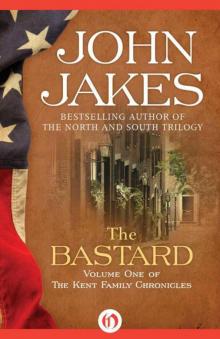 The Bastard
The Bastard The Furies
The Furies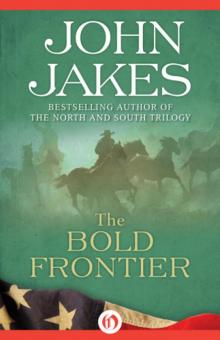 The Bold Frontier
The Bold Frontier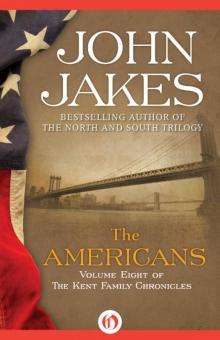 The Americans
The Americans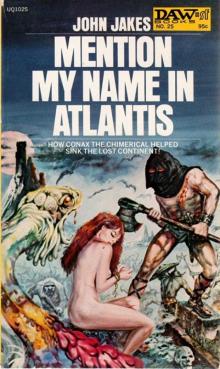 Mention My Name in Atlantis
Mention My Name in Atlantis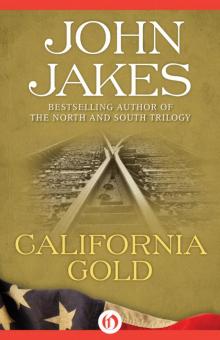 California Gold
California Gold North and South
North and South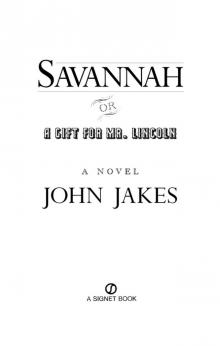 Savannah, or a Gift for Mr. Lincoln
Savannah, or a Gift for Mr. Lincoln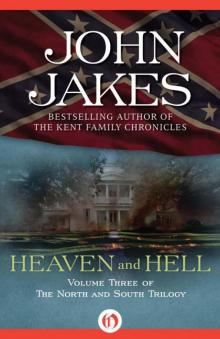 Heaven and Hell
Heaven and Hell Homeland
Homeland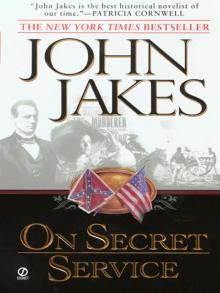 On Secret Service
On Secret Service The Lawless
The Lawless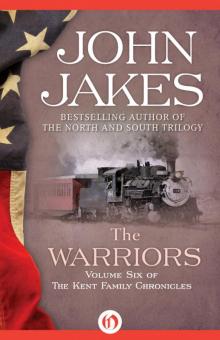 The Titans
The Titans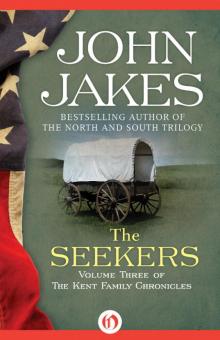 The Seekers
The Seekers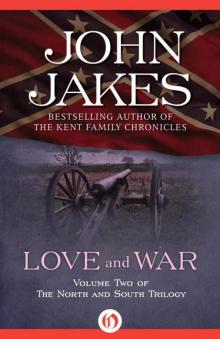 Love and War
Love and War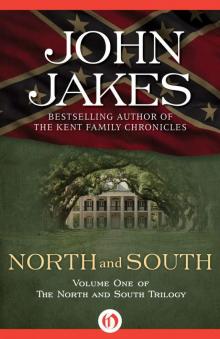 North and South: The North and South Trilogy (Book One)
North and South: The North and South Trilogy (Book One)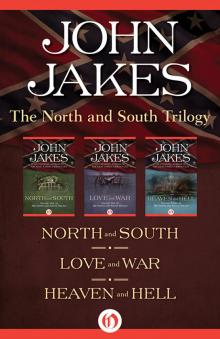 North and South Trilogy
North and South Trilogy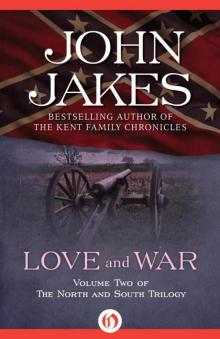 Love and War: The North and South Trilogy
Love and War: The North and South Trilogy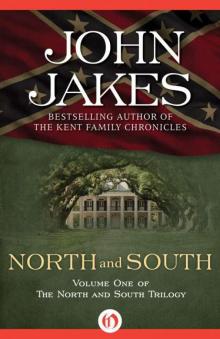 North and South: The North and South Trilogy
North and South: The North and South Trilogy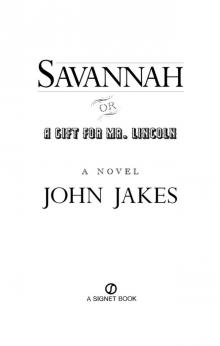 Savannah
Savannah Lawless
Lawless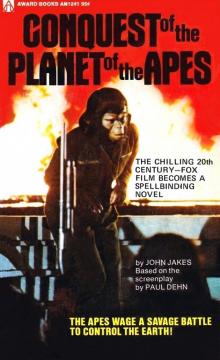 Conquest Of The Planet Of The Apes
Conquest Of The Planet Of The Apes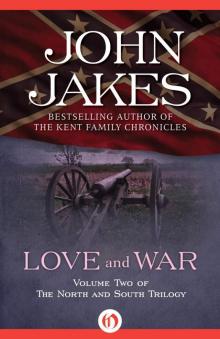 Love and War: The North and South Trilogy (Book Two)
Love and War: The North and South Trilogy (Book Two)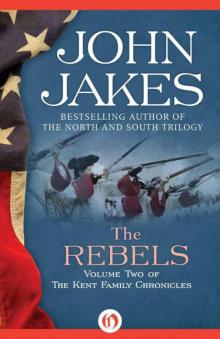 The Rebels: The Kent Family Chronicles
The Rebels: The Kent Family Chronicles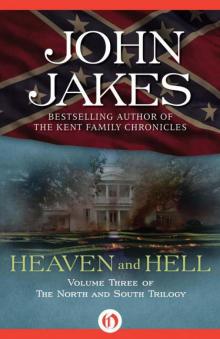 Heaven and Hell: The North and South Trilogy
Heaven and Hell: The North and South Trilogy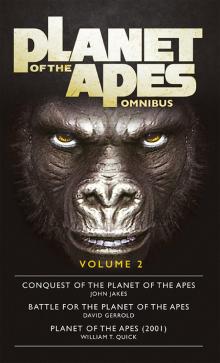 Planet of the Apes Omnibus 2
Planet of the Apes Omnibus 2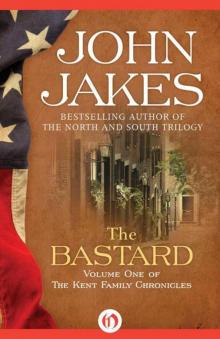 The Bastard: The Kent Family Chronicles
The Bastard: The Kent Family Chronicles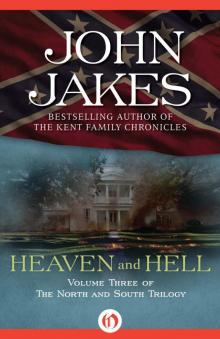 Heaven and Hell: The North and South Trilogy (Book Three)
Heaven and Hell: The North and South Trilogy (Book Three)